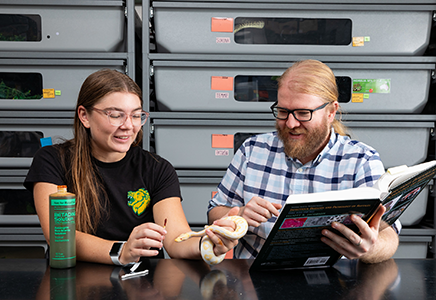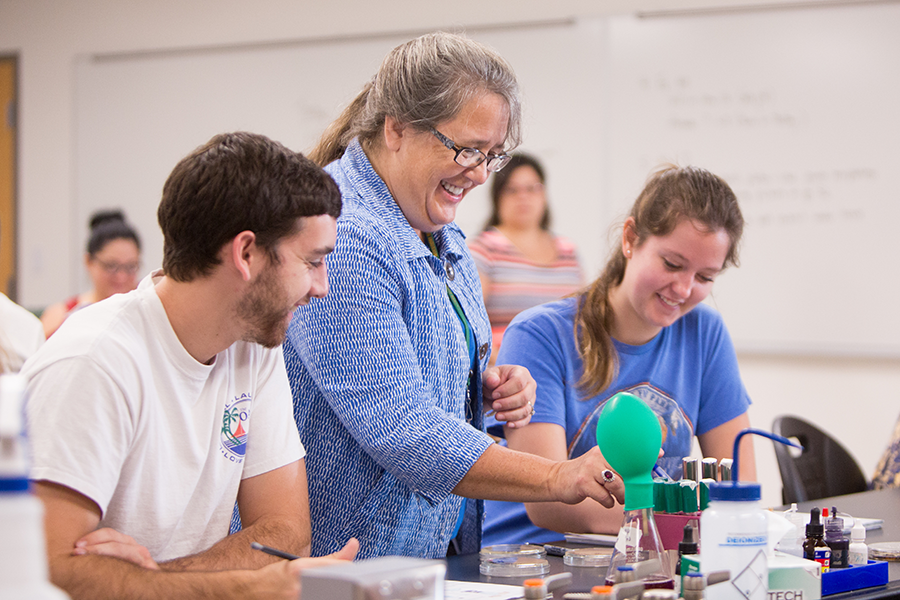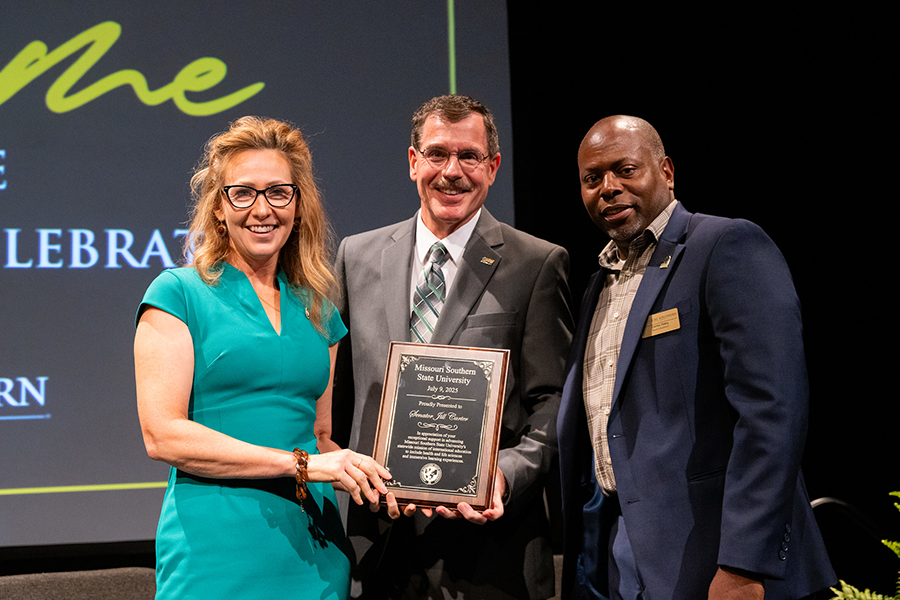The Biology Department at Missouri Southern State University (MSSU) is excited to announce the arrival of several rare and endangered animals, bringing unique learning opportunities to students and faculty alike. This new addition of species to the department includes two indigo snakes that are federally protected under the Endangered Species Act. The department expects to also receive spider tortoises, which are listed as critically endangered by the International Union for Conservation of
Nature’s (IUCN) “Red List of Threatened Species.”
The indigo snake, known for its striking, glossy black scales and significant length, is the
longest native snake species in North America. Due to habitat loss and other threats, it
has become increasingly rare in the wild. The spider tortoise, on the other hand, is native
to the dry forests of Madagascar and faces an even graver threat: it is classified as
critically endangered by the IUCN. The spider tortoise’s critically endangered status
means it is only one step away from extinction, highlighting the urgency of conservation
efforts for these animals.
With the addition of these animals, MSSU’s Biology Department aims to provide
students with invaluable, hands-on experience in research, education, and conservation
efforts. To support this initiative, MSSU is seeking to raise $20,000 to fund the purchase
of professional-grade enclosures that meet the specific needs of these animals. The new
housing will help protect these endangered species and serve as a tool for educating
future wildlife professionals and contributing to conservation efforts.
“Our goal is to create an environment where students can learn about these animals up
close while respecting their need for a safe, natural habitat,” said Dr. Penning, head of the
MSSU Wildlife Society and a faculty member in the Biology Department. “With the
proper enclosures, we can ensure these snakes and tortoises not only survive but thrive in
our care, while giving students a once-in-a-lifetime learning experience.”
Student Perspectives
Students at MSSU are enthusiastic about the unique learning experiences this project
offers. Hannah Rhymer, a sophomore pre-veterinary student from Salina, Oklahoma, and
a legacy Lion whose family attended MSSU, expressed her excitement.
“MSSU has given me so many opportunities in my future career field. As a pre-vet
major, this project will allow MSSU to obtain a more diverse population of animals,
which is crucial for my career goals,” Rhymer said. “Dr. Penning has opened many
possibilities for me and other students through the reptile husbandry labs and the research
projects, like my current work in the mice lab studying eating habits. The growth of
animal research at MSSU will provide current and future pre-vet students with
opportunities that other universities don’t offer.”
Lucas Hatfield, a senior majoring in wildlife conservation, is set to graduate with his
second degree from MSSU in December. With a background in education, Hatfield
returned to MSSU to focus on conservation.
“Dr. Penning, the biology department and the research opportunities have been
transformative,” Hatfield said. “With the new housing and enrichment for the animals,
this program will only get better, giving students like me even more hands-on experience
that can take us anywhere in the field.”
Hatfield, a crew leader on a snake research team, plans to bring his expertise back to the
education field to inspire future generations about conservation.
Addison Wallace, a senior biology major focusing on ecology, evolution and
conservation, is also a second-generation Lion. As president of the MSSU chapter of The
Wildlife Society, Wallace believes the new enclosures will expand research
opportunities.
“These hands-on experiences have given me a competitive edge in my future career,”
Wallace said. “I’ve gained a strong foundation in caring for exotic animals and
understanding their behaviors, which is essential for my goal to work in a zoo or
sanctuary.”
Sophomore biomedical science major and student-athlete Lily Rand is also excited about
the potential addition of rare tortoises.
“The chance to conduct research with animals on federal protection lists is incredible,”
Rand said. “The biology department here drew me in because of the animals on display,
and with more enclosures, we can showcase our rare species even more. For future
students interested in working with endangered animals, MSSU offers an unparalleled
experience.”
These specialized enclosures, to be located in Reynolds Hall, will provide secure and
stimulating environments for animals, allowing for public viewing and increasing
awareness of these species' conservation needs. The housing will also support natural
behaviors for the animals.
The Biology Department is calling on alumni, the community, and conservation
supporters to help fund these enclosures and support MSSU’s commitment to wildlife
conservation. Every donation directly impacts MSSU’s ability to house and care for these
rare animals and helps provide an unparalleled educational experience for its students.
To contribute to the campaign and help create a secure home for these species, please
visit www.mssu.edu/advancement/giving/zoological-project.php.




